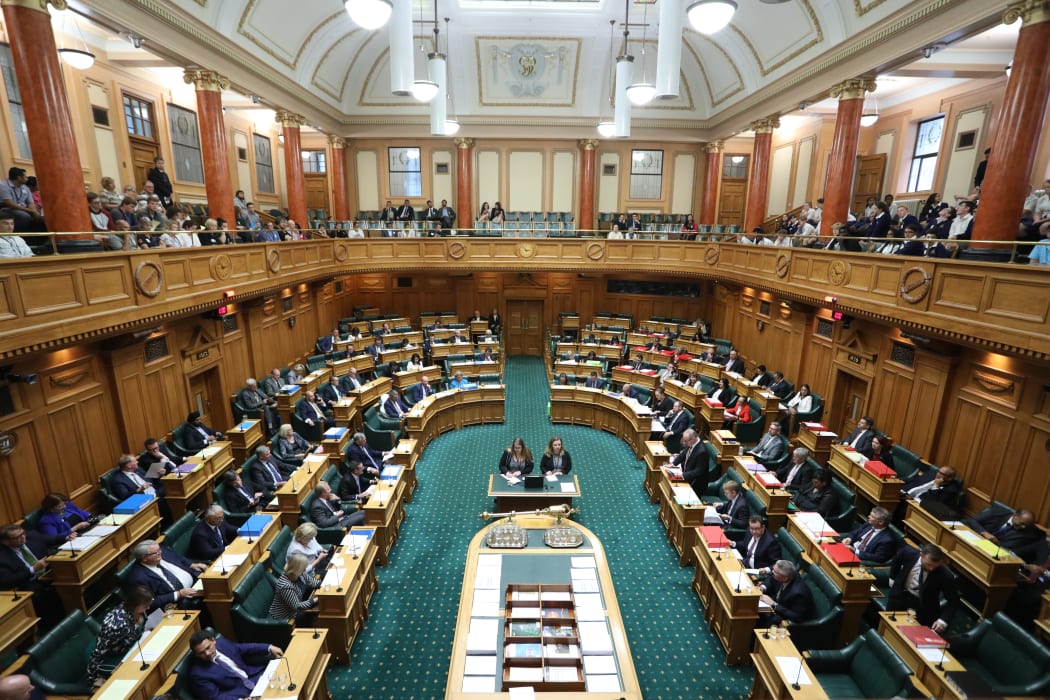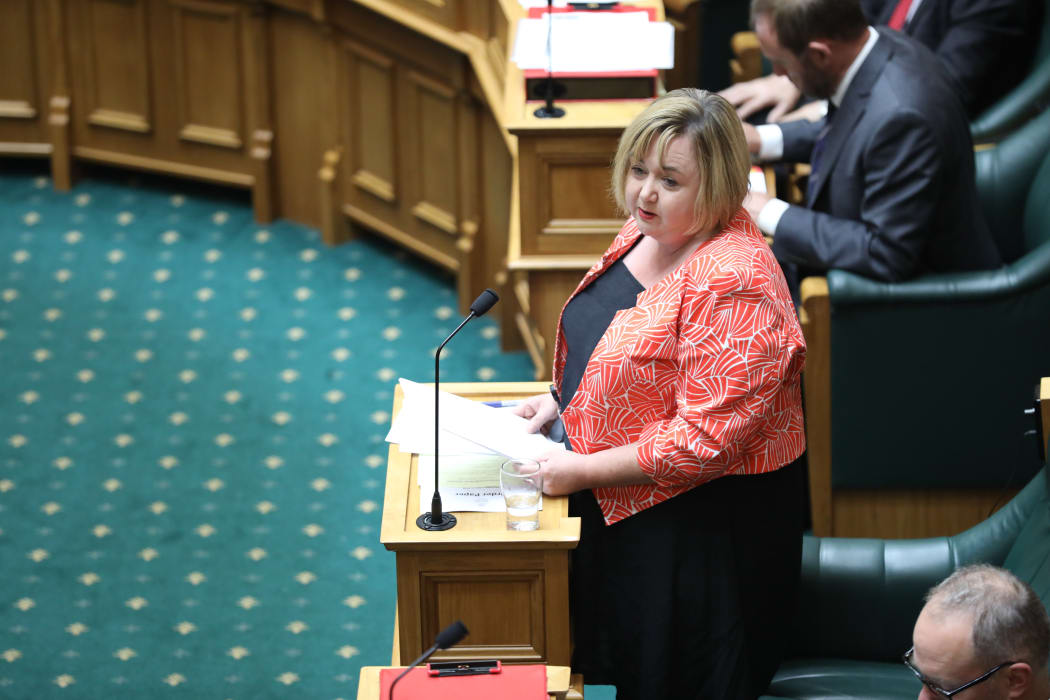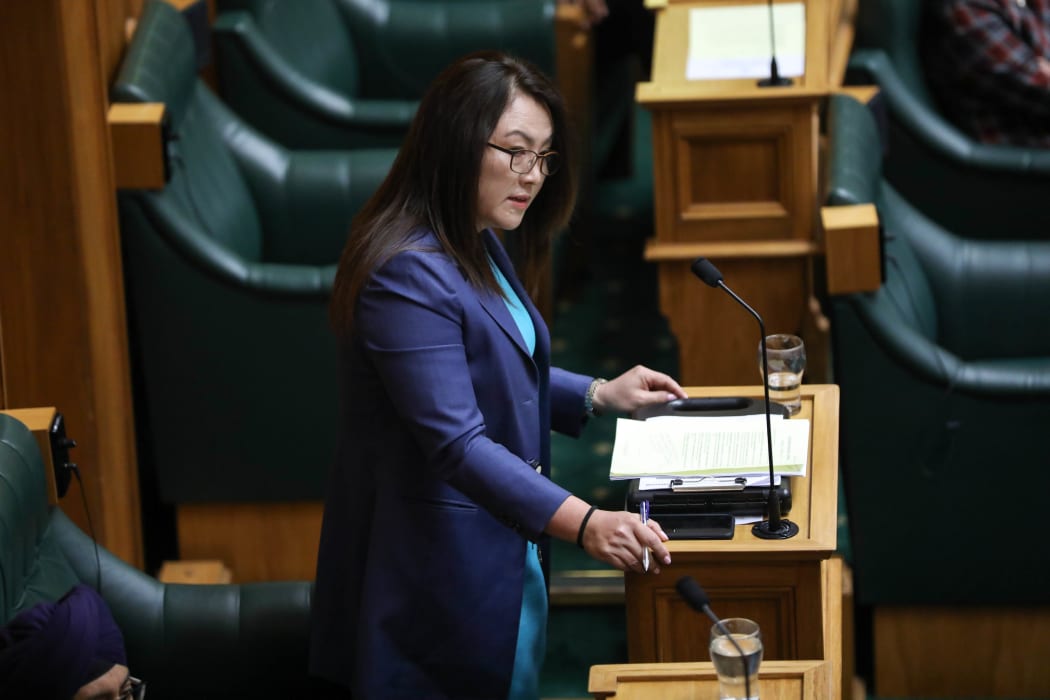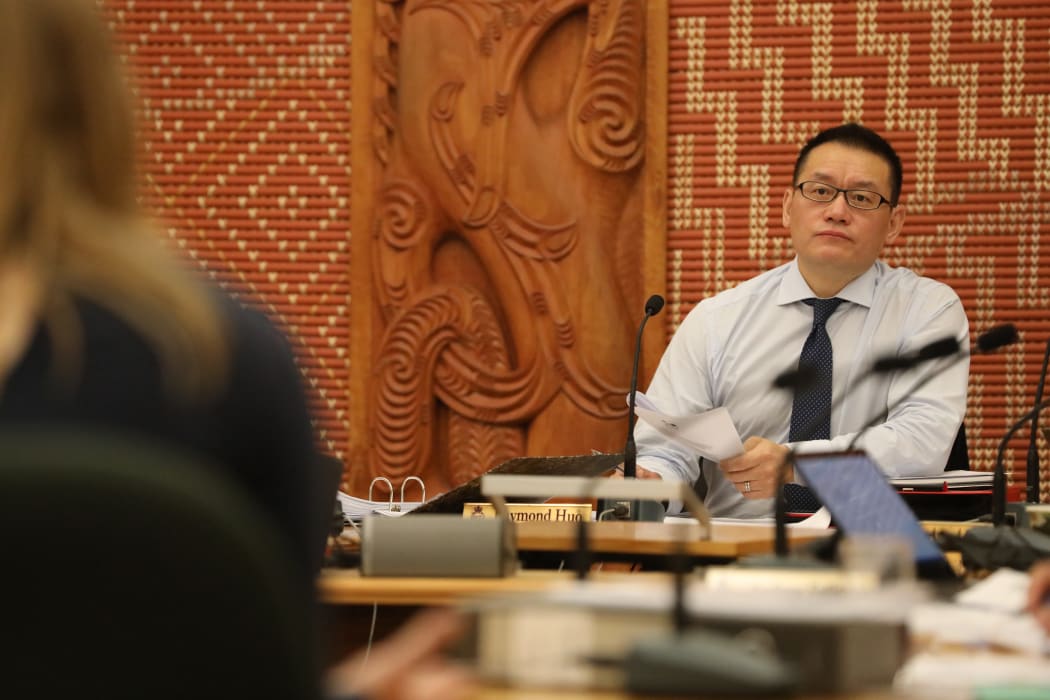Ever look at your bank account after a night out and think 'whoops'?
Maybe you spent more than planned (whose idea was it to do rounds anyway?) and maybe it’s less (bless those two-for-one meal deals).
Regardless, those decisions must be justified or accepted and, in a way, the Government does this every year as part of its financial cycle.

The House of Representatives. Photo: VNP / Phil Smith
Officially it’s the Appropriation (2017/17 Confirmation and Validation) Bill which is just a fancy name for checking off and approving the actual spending of taxpayer dollars from the past financial year.
The Bill is treated a bit differently to other bills. Most bills are introduced, have a debate at their first reading and are then referred to a select committee before returning for a second reading; not this Bill.
There’s no debate at its second reading either. Instead, the Bill speeds through the first four stages of a bill until it reaches the part known as the Committee of the Whole House and this is where things finally start to happen.
Normally the Committee of the Whole House stage is where MPs pick a bill apart piece by piece saying things like:
“Firstly I’m concerned about the drafting, it’s phrased in the negative...” or “I want to draw attention to clause 2 section 14...”. It’s all about the details which are important but often tedious listening.
Any MP can speak in this stage, or propose changes and there’s no set time limit. Once the final form of a bill is agreed upon it’s reported back to the House (from the House-in-Committee), and boom it’s ready for its third reading.
But, for this unique snowflake of a bill, the committee stage is different - it turns into the Annual Review Debate and it’s used by the House to debate the Government’s financial position. This debate is also where a completely different process intersects with this Bill.
MPs have been reviewing government spending and performances in the various select committees for the past few weeks in what are called Annual Reviews, and if you think that sounds eerily similar to the name of the Annual Review Debate you would be correct.
in those select committee reviews the bosses of government-funded entities were grilled on their organisations' performances and then reports were written by select committees for the House.
Those reports are then used as a basis for the Annual Review Debate - for MPs to debate the good, the bad, and the ugly of how taxpayer dollars were used in the last financial year.
So naturally, the Government takes a defensive stance about performance and boasts about all the good things it has achieved.
For example Labour’s Megan Woods said “it is a privilege to outline an ambitious and progressive plan that we have for the economy in this country on this side of the House”.

Labour Cabinet Minister Megan Woods. Photo: VNP / Phil Smith
The Opposition can use the debate to point out the Government’s flaws and talk about how much better things were when they were in charge.
For example: “the previous National Government led this country so well that we’re actually on the forefront when it comes to things like...ultra fast broadband,” said National MP Melissa Lee.

National MP Melissa Lee Photo: VNP / Daniela Maoate-Cox
The Government is in the unusual position of having taken over the job part way through the financial year so they are effectively dealing with decisions made by someone else, which in this case, is the previous National Government.
“The result of the 20th century model that the last government was pursuing was increasing pollution, which is contributing to destabilising the climate,” said Associate Minister of Transport and Green MP Julie-Anne Genter.
“Of course all of that was resulting in profits for a few, just profits for a few. While the many, many New Zealanders were not seeing any of the benefit of this, just dirty rivers, less fish to go out and catch and increasing carbon emissions as long as we can see into the future.”
They continue back and forth like this for ten hours.
Yep, ten whole hours in the House have been allocated for this debate which is split into ten sections. One for each vote or section of the annual budget.
-
Economic Development and Infrastructure Sector
-
Education Sector
-
Environment Sector
-
External Sector
-
Finance and Government Administration Sector
-
Health Sector
-
Justice Sector
-
Māori, Other Populations and Cultural Sector
-
Primary Sector
-
Social Development and Housing Sector
The debate on each section is lead off by the chair of the relevant committee, with responsible Ministers allowed multiple speeches; other members can make two with a five minute limit on each speech.

Labour MP Raymond Huo chairing the Justice Committee which conducted a number of annual reviews, including of the Police, Serious Fraud Office and Ministry of Justice. Photo: VNP / Phil Smith
The number of speeches each party gets to make is roughly the same as their presence in the House.
So as National have the most seats they get 52, Labour 42, New Zealand First 8, Greens 7, and ACT gets 1.
Parties get to decide when their calls will be used so, in theory, National could use all 52 speeches on one topic and drag it out for over four hours.
At the end of each topic the “question is put that the committee reports relevant to the sector be noted”, which is another way of officially saying “cheers for that report, we’re done talking about it now. Let’s move on to the next topic”.
While there is a ten hour time limit on the debate, there’s no requirement to do it all at once; the debate is actually spread out over a couple of weeks so that other business can be put through at the same time.
Once the debate/committee stage is done, the Bill is set down for its third reading with, you guessed it, no debate.
But after ten hours spent on the previous stage, they’re probably talked out.


